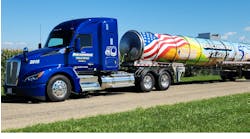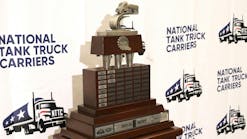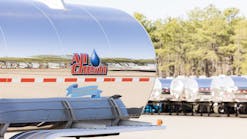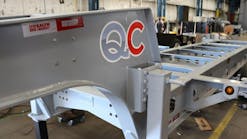Congress issues draft legislation that would ban tank trailer wetlines
Petroleum haulers and other tank trailer owners got good news and bad news on the wetlines issue from the US House of Representatives Transportation and Infrastructure Committee.
First the bad news: The committee released its draft of the Hazardous Material Transportation Act Reauthorization Bill on June 22. It contains a section banning wetlines (more specifically, retained product piping) on any trailer hauling hazardous materials.
For new-build tank trailers, the ban would take effect two years (probably in 2012) after enactment of the bill. Additionally, no hazardous materials would be allowed in “external piping of any cargo tank motor vehicle (new or used) after December 31, 2020.
The good news in all of this is that retrofit of existing cargo tank trailers could be deferred until the December 2020 final deadline—11 years down the road.
“This is actually very good news from a worker safety and economic standpoint,” said John Conley, president of National Tank Truck Carriers. “I believe that demonstrating to the committee the danger posed to workers by a retrofit of the existing fleet did have some resonance.”
Another bit of good news is that most straight trucks appear to have been excluded. Many combination vehicles—such as Michigan doubles—also appear to have been ignored.
Still, this legislation will have a significant economic impact on the tank truck industry if it becomes law. After 2020, a cargo tank trailer, regardless of age (be it eight, 10, or 20 years old) would have to be retrofitted with some kind of wetlines purging system or would be barred from hauling any type of hazardous material.
For petroleum haulers, it is important to note that diesel and heating oil are classified as hazardous materials, according to Conley. “No cargo tank trailer with wetlines could be used for any hazardous materials, not just flammables,” he said. “Downgrading a trailer with wetlines from gasoline to diesel or heating oil would not be an option without a retrofit.”
Conley called for continued opposition to the proposed legislation. Even with revisions, the legislation still would be too expensive and would pose too much of a safety risk.
“I urge everyone in the tank truck industry to continue calling on members of Congress to refrain from banning wetlines in the HMTA reauthorization,” he said. “The revised amendment is better than the original concept of a ban on all wetlines in as little as one year after enactment. However, the amendment is still unacceptable and should not be viewed as a compromise. The bill is too costly, assumes that a workable system will be developed within two years of enactment, and simply defers the dangers of retrofit.
“The committee has taken an unsafe and unnecessary proposal and revised it to be simply an unnecessary amendment, at least until 2020. We are still looking at a retrofit, though certainly one with less overall impact.
“At the very least, the amendment needs further revision to require that the Secretary of Transportation report back to Congress within two years the results of a study to determine how a ban on wetlines on new equipment could be accomplished after a certain date and how such a regulation would be enforced. Such a study also could address how an eventual and phased ban on wetlines on the entire petroleum trailer fleet could be accomplished with the least safety impact on any workers performing a retrofit, least economic and operational impact on carriers, and least economic impact on trailer manufacturers.”
The revised amendment also needs further clarification to cover “flammable” materials only, not all hazardous materials. Conley says he believes flammable products were the only ones being addressed by the House committee. Clarification also will be needed to indicate how the wetlines ban would be enforced, how a roadside inspector would check for compliance, and whether a trailer with non-compliant wetlines would be considered out of service.








